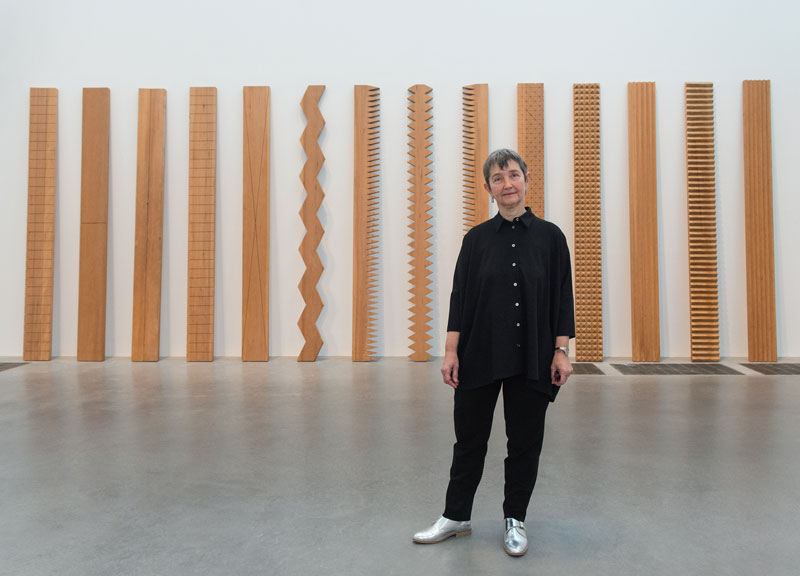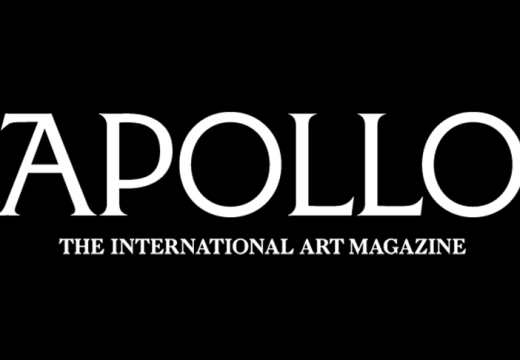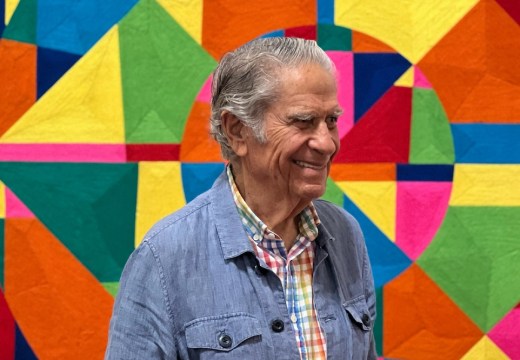Our daily round-up of news from the art world
Tate Modern Appoints New Director | Frances Morris has been named as the next director of Tate Modern, taking over from Chris Dercon later this year. The longstanding Tate employee (she joined as a curator in 1987) was posted to Tate Modern as Head of Displays when it opened in 2000 and has been a leading figure at the gallery ever since. Her appointment comes at a critical time for the museum, which is preparing to open a new building on 17 June. More on the appointment and its significance here.
Peter Bazalgette Steps Down as Chair of Arts Council England | Meanwhile, Arts Council England has begun its search for a new leader. The current Chair, Sir Peter Bazalgette, has announced that he will step down at the end of his tenure, in just over a year’s time (31 January 2017). He has no intention of retiring from public life, however, claiming that he has ‘a number of opportunities in the Creative Industries I’d like to take up before I pop my clogs.’ His successor will be appointed by DCMS.
Readings Worldwide in Support of Condemned Poet and Artist Ashraf Fayadh | Public readings were held around the world yesterday to protest Saudi Arabia’s decision to sentence Palestinian artist, curator and poet Ashraf Fayadh to death for apostasy. Fayadh, who is a member of the Anglo-Palestinian group Edge of Arabia, mounted an appeal against the sentence last year: it will be considered by a panel of judges next week. Despite the widespread condemnation of the sentence, and Fayadh’s high profile in the international art world, his fate remains worryingly uncertain in light of Saudi Arabia’s spate of executions at the start of the year.
Gurlitt Hoard Investigation Has Only Identified Five Stolen Works | Jewish groups have criticised the German government task force investigating Cornelius Gurlitt’s art collection for its slow progress in establishing the provenance of the works. Officials presented a final report into the two-year, $2 million project yesterday, confirming that – out of over 1,200 artworks under investigation – just five had been proven to be Nazi loot and their rightful owners located. Hundreds more require further investigation, which will be undertaken by a new agency, the German Lost Art Foundation. Monika Grütters, the German culture minister, acknowledged that the investigation had proven more time-consuming than expected, but also pointed out that ‘speed and thoroughness are not both possible in provenance research’.
Holburne Museum Acquires Thomas Lawrence Painting | Good news from Bath, where the Holburne Museum has successfully raised £450,000 to buy an oil sketch by 18th-century painter Thomas Lawrence. Despite living in Bath for seven years, the artist was previously unrepresented in the collection. The painting is a study of the youthful Arthur Atherley, son of a wealthy banker, whose finished portrait is in the Los Angeles County Museum of Art.
Louvre to Restore Leonardo da Vinci Masterpiece | Leonardo’s smiling St John the Baptist is getting a makeover. The work will be removed from the Louvre’s Grand Galerie at the end of the month for restoration, which will primarily involve thinning the varnish that has accumulated and discoloured over the centuries. ‘Prudence and pragmatism, that’s our doctrine’, explained director of the painting department Sébastien Allard. Given the Louvre’s previous in this field, we will withhold our judgement…
Facebook Flooded with Artistic Nudes | Culture lovers gave Facebook’s censors a lesson in art history yesterday by uploading multiple images of artistic nudes to the social media platform. ‘Facebook Nudity Day’ was intended as a protest against the social media platform’s irritating tendency to take down artistic images of nude or naked figures – and suspend the accounts of whoever added them. Artistic nudes are officially permitted on the site, but it seems some Facebook employees are overly cautious. Has the initiative left them with a new-found appreciation for the likes of Courbet’s L’Origine du Monde? Or are we about to see a lot less of our art historian friends online while they battle to regain control of their accounts?
Unlimited access from just $16 every 3 months
Subscribe to get unlimited and exclusive access to the top art stories, interviews and exhibition reviews.












![Masterpiece [Re]discovery 2022. Photo: Ben Fisher Photography, courtesy of Masterpiece London](http://www.apollo-magazine.com/wp-content/uploads/2022/07/MPL2022_4263.jpg)






